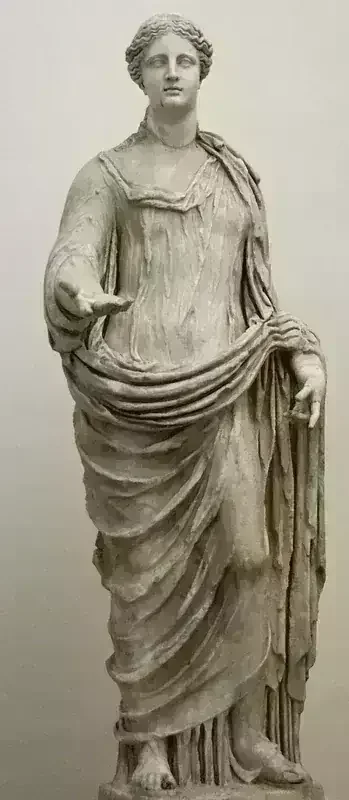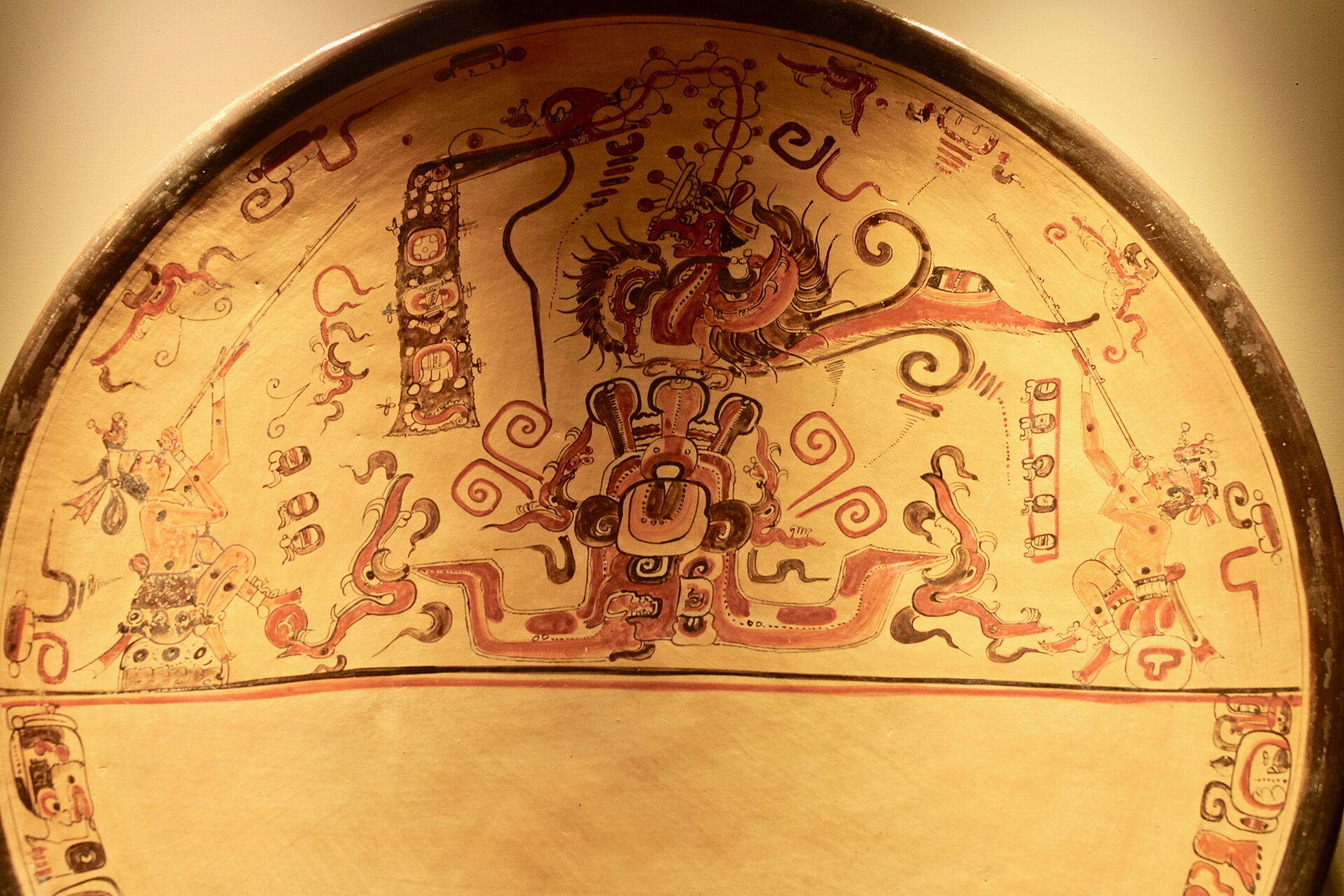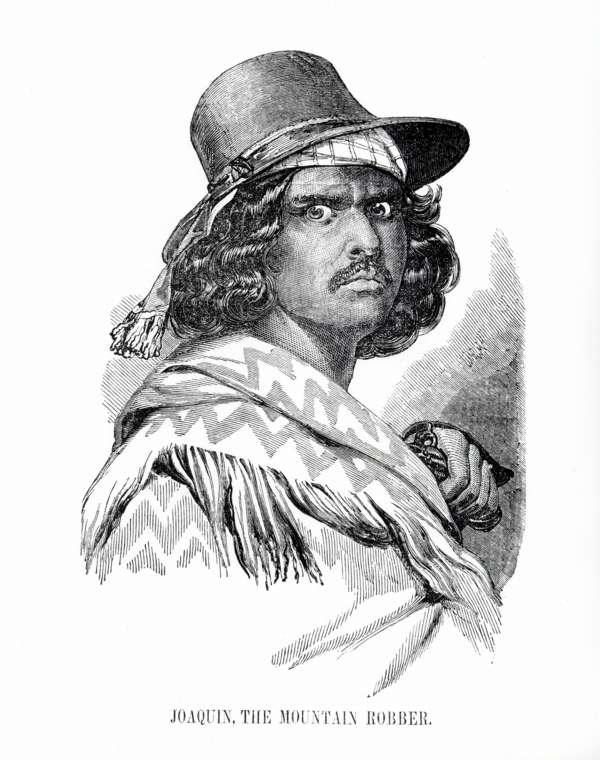Demeter

In ancient Greek religion and mythology, Demeter (/dɪˈmiːtər/; Attic: Δημήτηρ Dēmḗtēr; Doric: Δαμάτηρ Dāmā́tēr) is the Olympian goddess of the harvest and agriculture. She presides over crops, grains, food, and earth's fertility. Though primarily known as a grain goddess, she also had domains in health, birth, and marriage, with connections to the Underworld.
She is sometimes called Deo (Δηώ Dēṓ). In Greek tradition, Demeter is the second child of Titans Rhea and Cronus, sister to Hestia, Hera, Hades, Poseidon, and Zeus. Like her siblings except Zeus, she was swallowed by her father as an infant and later rescued by Zeus.
Through her brother Zeus, Demeter became mother to Persephone, a fertility and resurrection deity. The notable Homeric Hymn to Demeter tells of Persephone's abduction by Hades and Demeter's desperate search. When Hades took Persephone to the Underworld to be his wife (with Zeus' permission), Demeter searched everywhere unsuccessfully until learning her daughter's fate.
In grief, she neglected her agricultural duties, causing a worldwide famine where nothing would grow. Zeus eventually ordered Hades to return Persephone, but because she had eaten Underworld food, she was required to divide her time between her mother and husband—explaining the seasonal cycle, as Demeter allows nothing to grow during Persephone's absence. Demeter's cult titles include Sito (Σιτώ), "she of the Grain," and Thesmophoros (θεσμός, thesmos: divine order; φόρος, phoros: bearer), "giver of customs" or "legislator," associated with the women-only Thesmophoria festival.
Beyond harvest, she governed sacred law and the life-death cycle. With Persephone, she was central to the Eleusinian Mysteries, a religious tradition possibly dating to the Mycenaean period (c. 1400–1200 BC).
Demeter was often equated with the Anatolian goddess Cybele and identified with the Roman goddess Ceres.


